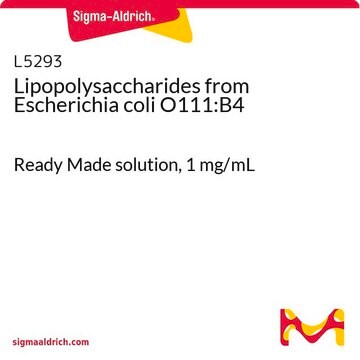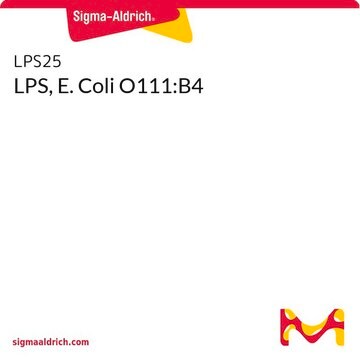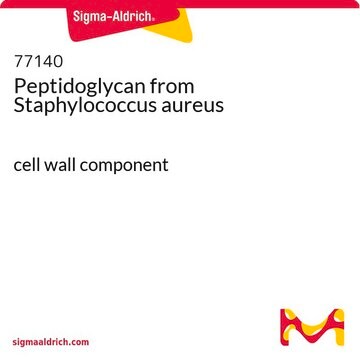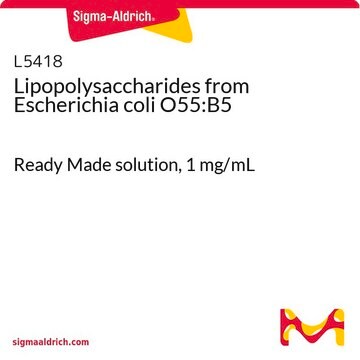L2018
Lipopolysaccharides from Escherichia coli K-235
purified by gel-filtration chromatography
Synonym(s):
LPS
About This Item
Recommended Products
biological source
Escherichia coli (K-235)
Quality Level
form
lyophilized powder
purified by
gel-filtration chromatography
impurities
<1% Protein
color
white to yellow cast
solubility
water: 4.90-5.10 mg/mL, cloudy to hazy, colorless to faintly yellow
shipped in
ambient
storage temp.
2-8°C
Looking for similar products? Visit Product Comparison Guide
General description
Biochem/physiol Actions
Preparation Note
Other Notes
related product
Signal Word
Danger
Hazard Statements
Precautionary Statements
Hazard Classifications
Acute Tox. 2 Oral
Storage Class Code
6.1A - Combustible acute toxic Cat. 1 and 2 / very toxic hazardous materials
WGK
WGK 3
Flash Point(F)
Not applicable
Flash Point(C)
Not applicable
Personal Protective Equipment
Choose from one of the most recent versions:
Certificates of Analysis (COA)
Don't see the Right Version?
If you require a particular version, you can look up a specific certificate by the Lot or Batch number.
Already Own This Product?
Find documentation for the products that you have recently purchased in the Document Library.
Customers Also Viewed
Articles
Explore the structure, function, and diverse applications of Lipopolysaccharides. Discover their role in bacteria, serological specificity, and research potential.
Related Content
Lipopolysaccharide (LPS) is a major component of Gram-negative bacteria, important for microbiological research.
Our team of scientists has experience in all areas of research including Life Science, Material Science, Chemical Synthesis, Chromatography, Analytical and many others.
Contact Technical Service





